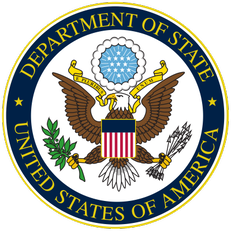


Fulbright Visiting Scholar Program 2024-25
Visiting Scholar Program deadline- 11:59 PM November 6, 2023
- Program Information
- Grant Benefits
- Eligibility Requirements
- Ineligibility
- Application Review Process
- Arrangements For Affiliation With A US Host Institution
- Application Link & Instructions
- The Project Statement
- Plagiarism
- List of Documents Required for Application Submission
- Recommendations
- Grantee Profiles
- Contact Us
Plagiarism
The Fulbright Visiting Scholar Program seeks applicants whose writing achieves highest academic standards of original research, writing, and citation. The program application includes the opportunity to describe your academic work and research. Application materials will be processed using software to help identify any instance of plagiarism. Plagiarism in any part of your application will result in your disqualification from participating in the Fulbright Visiting Scholar Program.
Plagiarism will be understood to include any of the following:
Presenting wording, statistics or concepts as your own which should be attributed to someone else or to publications (online or offline). This includes, but is not limited to:
- Copying the exact wording of a written source
- Presenting material with alterations in wording
- Paraphrasing the content of a source without citation
It is expected that your project proposal will be your own work and writing, clearly citing secondary sources when describing the academic work and writing of others (including one’s own previously published work). Any sources used in the construction of your responses must be clearly cited in your project statement and bibliography.
Resources for Scholars
American Journal Experts (Aje) White Paper: Avoiding Plagiarism
Knowing and Avoiding Plagiarism during Scientific Writing
Four Common Types of Plagiarism in Academic Publishing


